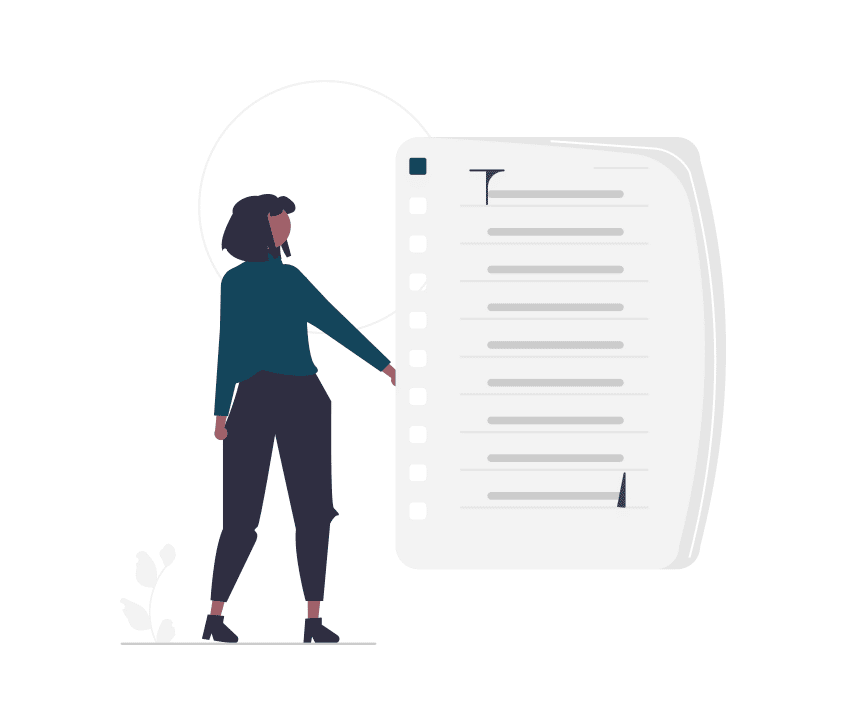
Steps You Can Take To Make Your Website Sound Like You Know What You’re Talking About
You might not be a writer by trade, but if you’re starting a website (or having one built for you), you’re going to need words for the pages. Generally, a basic website needs to have information on the product or service you sell, the general area you serve, contact information, a blurb about the members of your team, and some salesy information on why someone should work with you or buy what you have to offer.
It might be daunting to think about writing anything other than the bare minimum for your website. We want to help you understand the importance of more written content on your website (for both users and search engines), and show you how to get started even if you don’t consider yourself a writer!
Why more content is better than none.
Research and experience will tell you over and over: websites with more content will outrank an equivalent website with less content. Meaning you could have the same business in the same area as someone who has a similar website as you, but if they have more content than your website, theirs will rank better than yours. You want your corner of the internet to showcase you as an expert on your business, your industry, and your customers. When there is more content on your website, there are more opportunities for your information to be crawled by search engines, and more chances that you’re going to get seen online. (Read more about content in this blog post!)
When getting started is the hard part.
It can be hard enough to talk about yourself, let alone write about yourself. Here are some ways to help you get some words on the page!
- Speak it! If you’re having a hard time with this, try saying it out loud first! It might feel awkward talking to nobody, but if you can sneak away and record some voice notes on your phone, you’ll have a great starting point. Record yourself talking about your favorite products, why you decided to start your business, or how your brand is impacting your community. Imagine that you’re talking to a completely clueless, but highly interested person who is dying to know every detail about you and your business. By recording yourself, you’ll have your own thoughts captured so you can put them into words and onto your website. Sometimes getting started is the hard part, that’s why recording your thoughts is a great place to begin. Once your information is recorded and written out, you can decide which bits of content belong on which pages of your website.
- Find your inspiration. If you’re not exactly sure what you should be saying or where you should be saying it, check out other websites in your industry to get some inspiration. We’re NOT telling you to go to another site and lift the wording or format, but it can be helpful to understand how others are talking about your industry. After perusing some websites, decide what you like and don’t like about each of them, and use that as a way to begin. Remember, this is your website and your business– so the words on your page should sound like they’re coming from YOU, not from the business down the road.
- Ask your friends. If there are people in your life who know about your business, ask them how they’d describe it. See if they accurately outline your services, products or business model. And if they get it completely wrong, that’s helpful too! This is a great way to find out how a non-industry person might talk about you and your business. It’ll give you ideas on where you need to get really clear and descriptive, it’ll show you what people think of your business, and it’ll also be a way to find out what people are excited about when it comes to your business.
- Make it yours! Like we mentioned before, the content on your website should sound like it’s coming from YOU. Consider how you speak to your customers or clients. That’s the “voice” that you should try and portray when you’re writing your content. Are you formal or casual? Do you like to joke around and sprinkle in sarcasm when it’s called for, or are you straight to the point? There is no right or wrong way to portray your voice online, as long as you maintain consistency throughout your site and that whatever voice you’re using is fitting for your industry.
How to know if you did a good job.
After you’ve done all the steps to creating content on your website, how can you know whether or not you’ve done a good job? One way is to look at your content with fresh eyes. Give yourself a day or two and approach your website as if you’re a new visitor. See that everything makes sense, is easy to read, and gives a good overview and impression of your business. Ask a friend or family member to read through your website. Be prepared for honest feedback! If they feel like your wording was unclear, or they didn’t really understand the message, you might want to revisit what you wrote. Ask for feedback from people (whom you trust) within the industry, and from people who have no idea what your business is about.
- Make sure that you’re checking for spelling and grammar errors.
- Make sure you’re using the correct forms of “their”, “they’re”, and “there” as well as “your” and “you’re”.. And other errors that people tend to make.
- Make sure you’re using proper punctuation.
- Make sure your sentences aren’t too long (or too short).
If you’ve taken all the steps to get your content started, polished and onto your website– Bravo! You’re at a great starting point. With practice, creating content for your website will become second nature.
And if you need some help.
We get it, writing is not for everyone. Whether you’re short on time, skills, or you just plain don’t want to do it, we can help! Our team of pro’s can work with what you have or start from scratch to make your website full of rich content that makes sense and helps your website rank well. Let’s get started!


